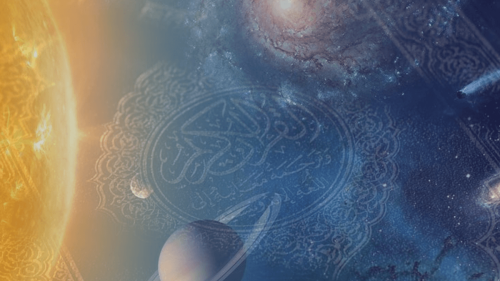Ilm Al-Suluk, Science and Itikaf
 {file:content.php} {function:blp_getCustomField} {postID:5527} {customField:theClapCount} {default:0}not-in-use-in-plain-child
{file:content.php} {function:blp_getCustomField} {postID:5527} {customField:theClapCount} {default:0}not-in-use-in-plain-child



`Ilm al-suluk is the method of putting knowledge into action so that theory comes to life. It is the lifeblood of sincerity. The word salaka means "to walk or go," as Allah (exalted is He), mentions in Surah Taha:
 |
| "And He has made earth spread out for you and salaka lakum fihaa (has enabled you to go out in it)" (Qu'ran, 20:53). |
`Ilm al-suluk is to tread the path of reliance, reflection and application, and it is the first and last science of Islam. Revelation began and ended with it.
Before his prophethood, Allah inspired Prophet Muhammad to spend time in solitude to prepare his heart and purify it for the weighty Word of Qu'ran. Towards the end of his life, he not only reviewed Qu'ran with Jibrail (the angel Gabriel) more than ever before, he also doubled his 'itikaf (solitary worship) from ten to twenty days. Is this not the kind of application of spiritual `ibadah (worship) that is sometimes misunderstood and ridiculed?
For this reason, it is the first science of Islam because without it the Messenger of Allah's heart would have never been ready to receive Revelation. So why is it the last science? Because every Muslim until today who seeks to understand Islam and know his Lord must first prepare his heart to receive the true meanings of Qu'ran by spending some time alone and purifying it, and this is what we hope to take from the spiritual retreat of 'itikaf in or outside of Ramadan.
|
|
| Allah |
Many people are religious but few are truly spiritual because spirituality is a gift from Allah . Fiqh (jurisprudence) will make you religious but `Ilm al-suluk will give you spirituality. The difference being that you cannot teach `Ilm al-suluk. That is why Imam Ghazali's books are so complex. Due to his yearning for the rest of us to experience what he had, he was trying to explain what cannot be put into words.
However in 1934, a psychologist named Kurt Goldstein, in his breakthrough work, The Organism, discovered a human condition that he called "self-actualization." Mr. Goldstein's discovery was later expounded on by Abraham Maslow. Maslow explained that these unique people (1% of the world's population according to him) who were able to self-actualize held certain traits. From these traits were the following: seeing reality as it is, having an inclination towards solitude, experiencing peak spiritual moments of ecstasy, possessing a renewed appreciation and awe for nature, feeling a deep connection and genuine concern for all humans despite labels and affiliations, being mission-driven in life in order to solve problems greater and beyond themselves, and having acceptance of the flaws and contradictions of others.
Are these not the characteristics of the prophets and righteous men? Compare those qualities with the traits of the Messenger of Allah , with Abu Bakr, with Umar, with Hasan al Basri, with Salahadin, radi Allahu `anhum (may God be pleased with them), with those hidden pious shuyookh (spiritual leaders) who still exist today far away from the spotlight. They are all one and the same.
Sometimes science comes along and confirms for us what we should have already been sure of. However, due to a lack of complete iman (faith) we may need additional confirmation. Some scholars assert that Allah waited to reveal the level of science we possess today for that simple reason; as a supplement to our iman.
As Muslims we cannot get caught in the technicalities of jurisprudence only. Because the peak of humanity is to actualize monotheism by reflecting God's Mercy through demonstrating generosity and tolerance towards other created things, whether those things are human, botanical, animal or inanimate. Call it self-actualization, call it tazkiyah (purification of the soul) or call it `Ilm al-suluk. Regardless of its name, when we realize its great impact, the world will be better off.
Source: SuhaibWebb
Topics: Islam And Science, Itikaf (Retreat For Worship)
Views:4780
Related Suggestions
In accordance with Title 17 U.S.C. Section 107, and such (and all) material on this site is distributed without profit to those who have expressed a prior interest in receiving the included information for research and educational purposes.















